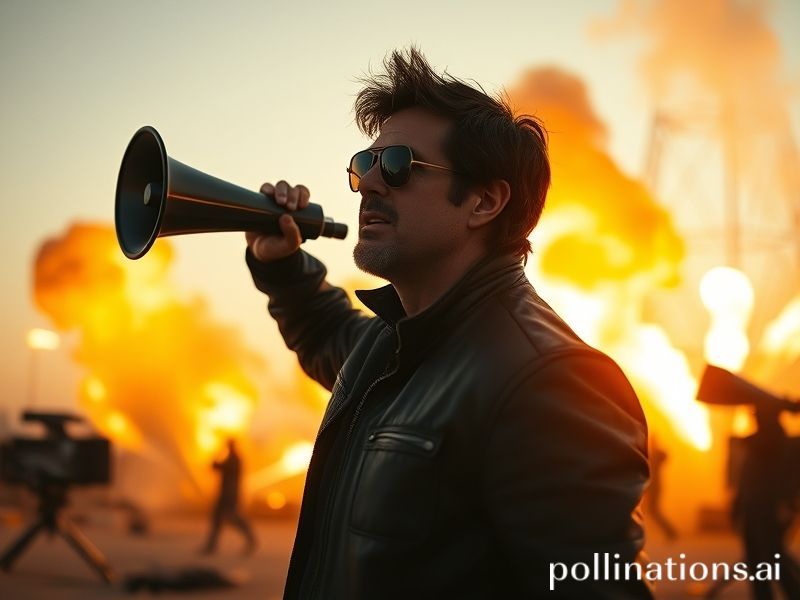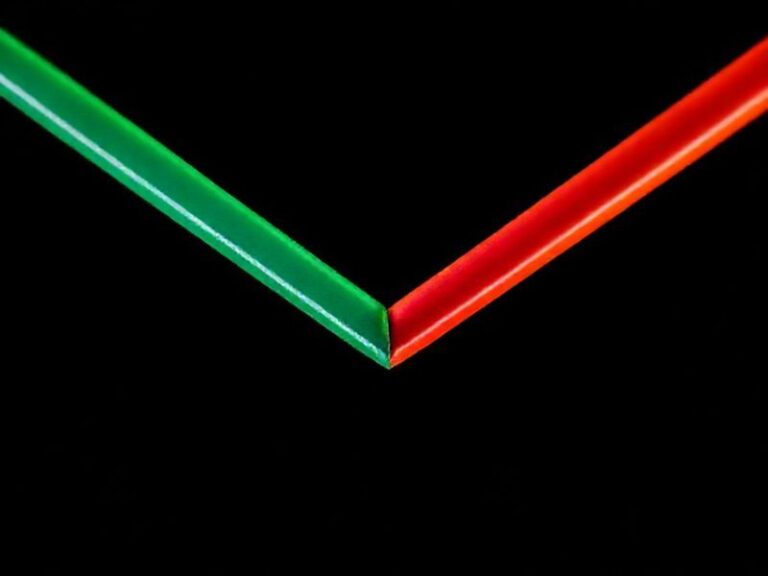Boom Diplomacy: How Michael Bay Became the World’s Loudest Cultural Attaché
Michael Bay: America’s Loudest Cultural Export and the World’s Guilty Pleasure
Bylines from Seoul to São Paulo keep asking the same question: how did a man whose films detonate more ordinance per minute than most medium-sized wars become the most reliable ambassador of U.S. soft power since Coca-Cola started putting names on bottles? The answer, like the plot of every Bay production, is equal parts pyrotechnics and profit motive.
Bay’s cinema is what happens when late-stage capitalism discovers C-4. His latest planetary migraine, *Asteroid Crisis: Revenge of the Insurance Adjuster*, opened in 73 countries last week, grossing $212 million before anyone in the Northern Hemisphere had finished lunch. Analysts in Mumbai noted that the film’s single-take chase through the Mumbai Metro required more visual-effects artists than the city employs actual train drivers. Meanwhile, in Lagos, bootleggers report that the DVD—complete with hand-scribbled cover art showing two extra helicopters and a dinosaur—outsells rice on market day. One pirate told me, grinning like a man who’s just sold NATO secrets, “People here like the explosions. They look like our transformer stations on payday.”
To dismiss Bay as mere spectacle is to miss the geopolitical genius baked into the shrapnel. His movies are the rare cultural product that require no subtitles and even less thought; the dialogue is essentially white noise between fireballs. That universal grammar of kaboom has made him the lingua franca of multiplexes from Warsaw to Wuhan. When NATO brass wanted a training film on asymmetric threats, they reportedly screened *Bad Boys II* at half-speed; apparently, the only way to predict urban chaos is to watch Will Smith drive a Ferrari through a shantytown in pursuit of a yacht.
Europe, of course, pretends to be above it all. French critics call Bay “le cowboy du bruit,” a noise cowboy galloping across the ruins of auteur theory. Yet Parisian theaters still booked *Asteroid Crisis* on four screens—two more than were showing the new Dardenne brothers meditation on Belgian misery. Ticket sales suggest Parisians prefer their angst wrapped in Dolby Atmos rather than existential despair. Berlin’s minister of culture, meanwhile, quietly approved a €1 million subsidy for local filmmakers to study “Bay’s kinetic editing rhythms,” which sounds suspiciously like paying someone to reverse-engineer a Tomahawk missile.
The Chinese box office deserves its own Nobel Prize in cognitive dissonance. State censors trimmed 37 seconds of “gratuitous destruction” from *Asteroid Crisis*, ostensibly to protect socialist values. The irony: those 37 seconds were digitally re-inserted by local streaming platforms as “exclusive bonus content.” A Beijing venture capitalist explained it to me over $50 cocktails: “We remove the explosion, then sell it back as premium. Very dialectical.” China’s Film Bureau now lists Bay as a “special cultural consultant,” which means they pay him not to blow up any more landmarks that look like the Forbidden Palace.
Global supply chains are in on the joke. Pyrotechnics firms from the Czech Republic to New Zealand now bid on Bay projects the way arms dealers once competed for banana-republic contracts. A Prague effects supervisor confessed that his company stocks magnesium by the shipping container “just in case Michael sneezes and another car chase breaks out.” The carbon footprint of a single Bay finale reportedly equals the annual emissions of Iceland, but the man offsets it by donating to a reforestation charity—on Mars, presumably, since that’s where the next sequel is set.
What does it all mean for the planet’s dwindling attention span? Simply this: while diplomats draft communiqués nobody reads, Bay has achieved what the United Nations never could—harmonized global eyeballs in synchronized distraction. His films are the bread and circuses of a world too exhausted to choose between Netflix and sleep. When the last glacier calves into the sea, odds are someone will be live-streaming it with a Bay-style lens flare and a Hans Zimmer foghorn.
In the end, Michael Bay isn’t just a director; he’s the doomsday clock’s stylist, powdering the face of apocalypse so it photographs well. We line up, popcorn in hand, grateful that someone still believes the end of the world deserves surround sound.







